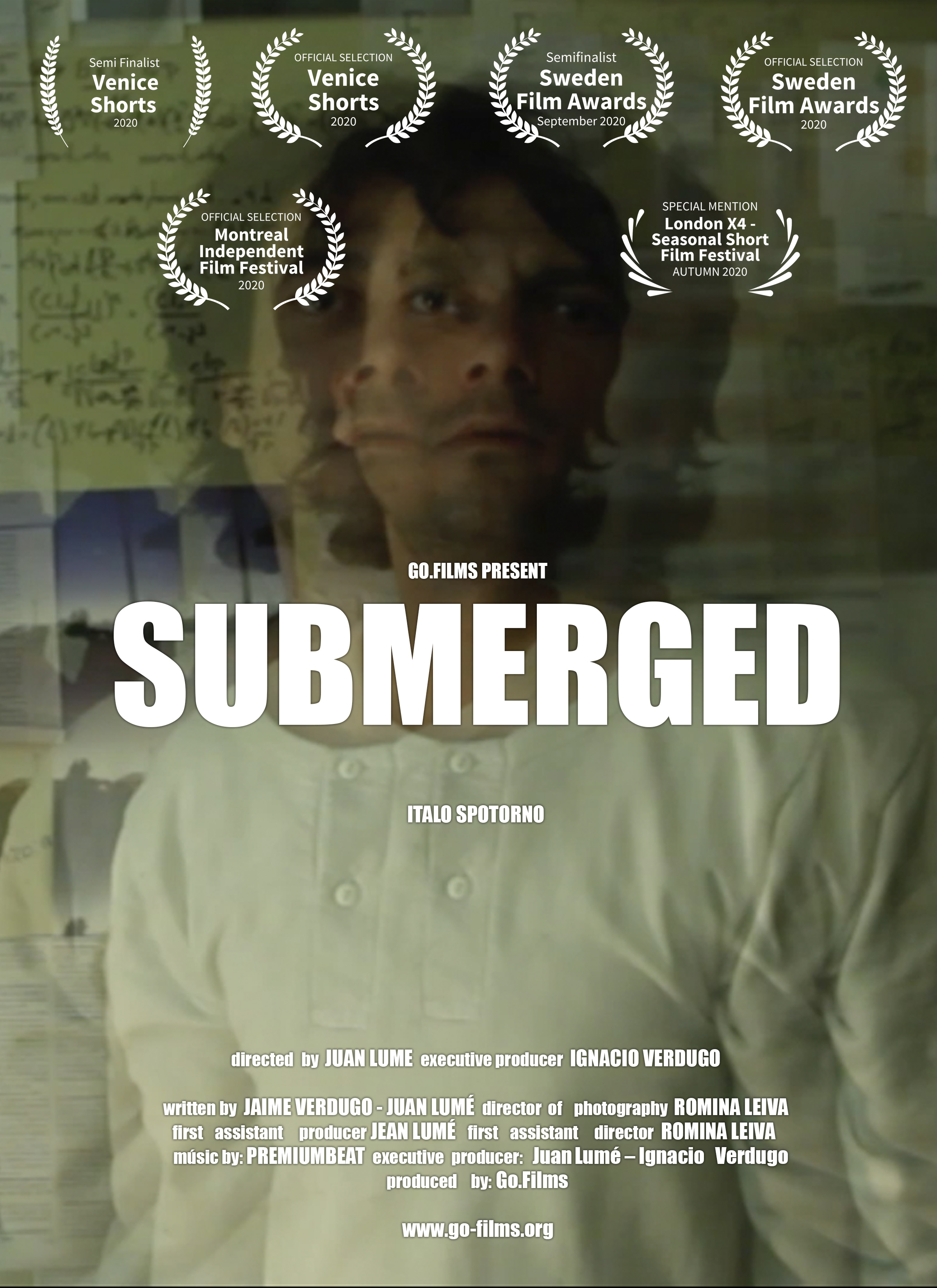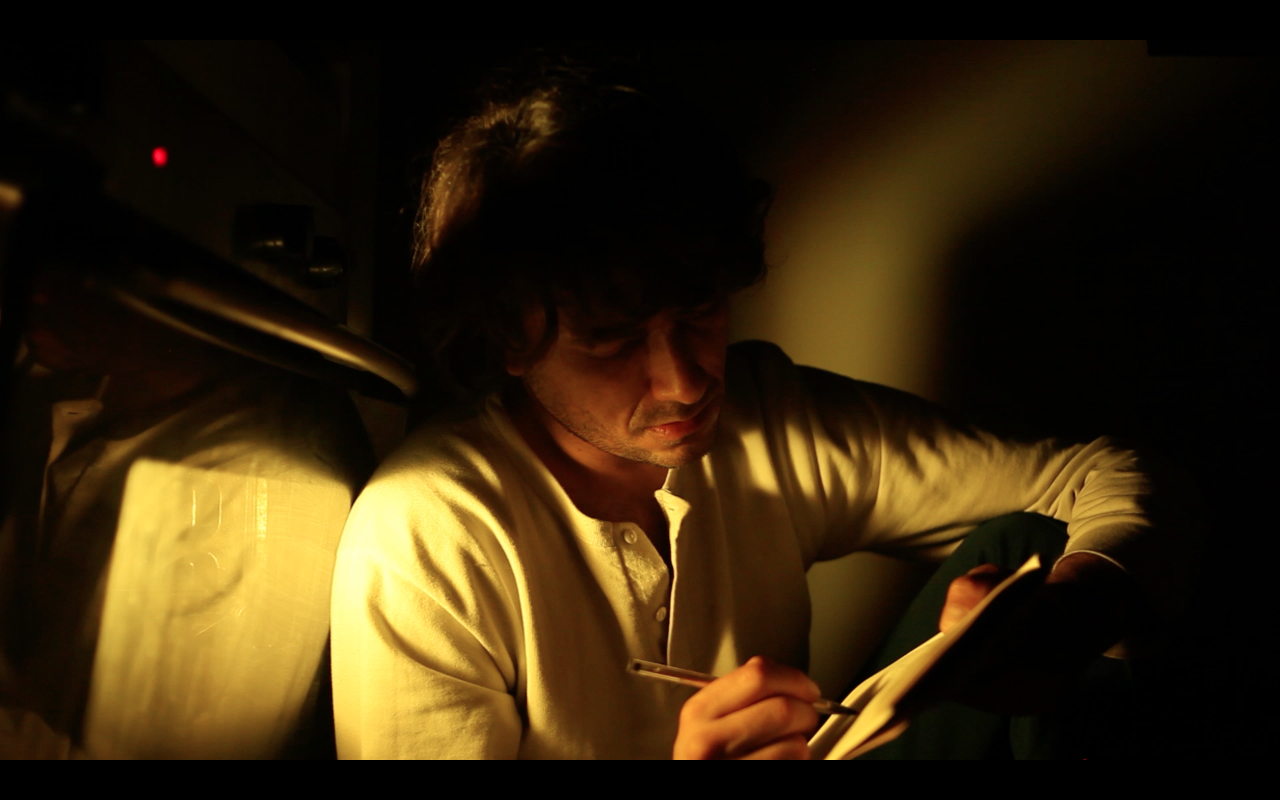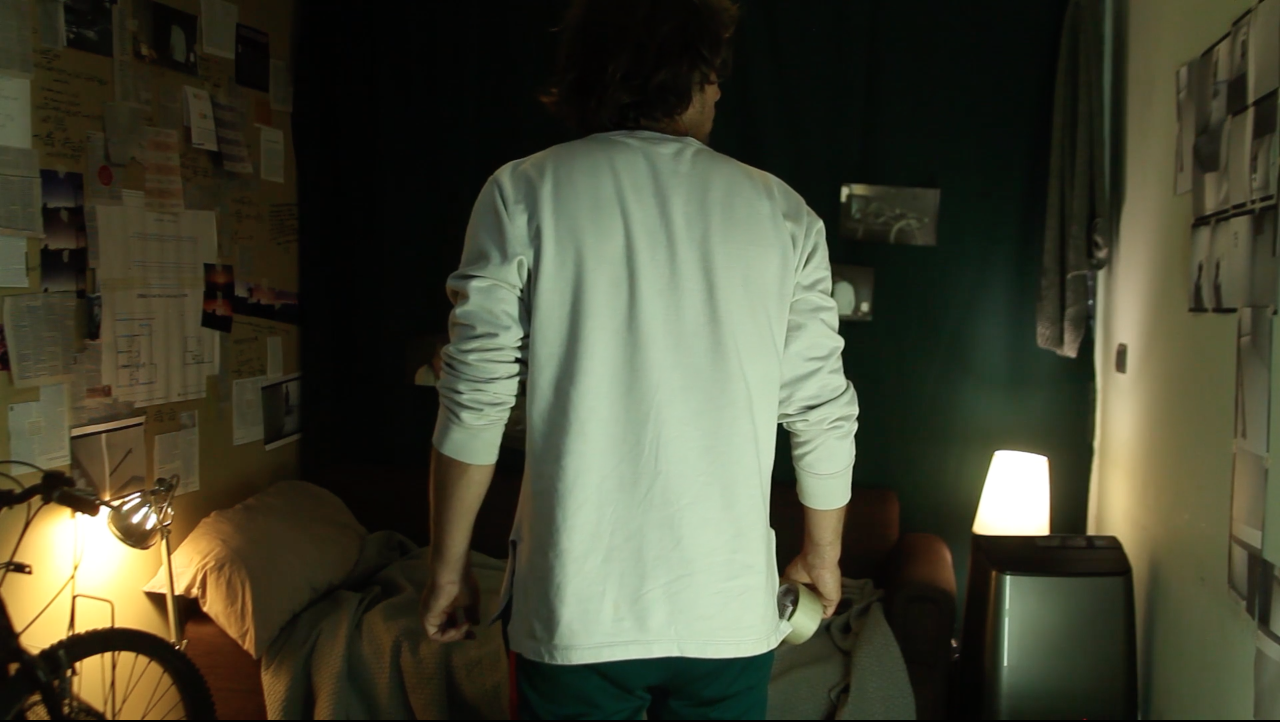The main actions happen after the mysterious disappearance of Joaquin, a lonely and reserved man, somewhat paranoid and obsessed with the idea of time travel.
Trying to prove this theory through his own death under the idea that once dead he can cross from one time to another. From there, Joaquin seeks to find the logic to this hypothesis, until the situation becomes more and more a supernatural experience. It seems that everything is related to the inexplicable event of his disappearance. In turn, this condition suggests keeping him trapped in a kind of universe parallel to reality; an eternal return to the place where he supposedly disappeared. This is how Joaquín sees himself traveling again and again within all possible scenarios without finding a way. out or explanations, nor the solution to what motivated him to start this strange and unpredictable journey; without a way out to help explain if it is possible to change the course of events or everything moves towards an invariable destination. Juan Lumé is the director of Submerged and we spoke to him about the making of his film.
What motivated you as a filmmaker to work on Submerged?
I believe in a higher consciousness that some people reach because they are connected to something intangible, which allows us to discover a different and superior nuance of what we conceive as reality.
The character’s heartbreaking loneliness, as well as the timelessness of the events taking place in the script, helped me to conceptualize what it would mean to reach the other side of this dimension and the connection with our other realities.
How did you start making films and what was the first film project you created as a director?
When I was a child I usually played at making home movies, I have always been a big fan of films, photography and reading. Through reading I could develop a great imagination, besides having many references. In my teens I often missed classes to go to the movies (I keep on smiling when I remember those days). My first real approach to cinema as a director was in a fiction workshop organized at Balmaceda 1215 in Santiago de Chile. After that I took different acting and film courses, what pushed me to work for many years as a producer, consequently, directing films was a dream that I had to put off for some years. Until, in collaboration with Ignacio Verdugo, we founded the production company Go.Films, where my first short film was «Caída Libre» (Free Fall), a drama about Pedro and Nina’s life, a couple who, between sex, drugs and several discussions, fill their lives by playing dangerously between passion and suicide, creating in them a pursuit in the extremes. This short film starred Italo Spotorno and Martina Sivori, two important actors in most of my works. It was a great experience that allowed me to quickly approach at the cinema world in order to want to continue investigating this language.

How difficult is it to fund independent films and what were some of the challenges of making this independent film?
It is extremely difficult, you must have a great desire of wanting to make your movie to be able to achieve it. You must be willing to work hard and overcome quickly when things get complicated in order to have new ideas that allow you to keep moving forward. I consider fundamental the willingness to learn that each process provides, no matter how difficult it may be at times. I am deeply grateful to my closest team for supporting with strength and conviction each project that we as Go.Films have set out to do. In that way, besides my work, the work done by Ignacio verdugo as general producer and Italo Spotorno as actor has been essential, we have developed an interesting, creative and production team together. In addition to Romina Leiva in Photography Direction.
Which genre is your most favorite genre to work on? Why?
The psychological thriller, without doubt, awakens a great interest in my creative and research processes. I consider it highly attractive to look at the mental confrontations that each character may have, to develop their humanity, to talk about their contradictions, fears, impulses, phobias, etc. Personally, I think this genre allows me to investigate in detail what a character is feeling or thinking. It demands intimacy in the narrative, it requires talent and intelligence in acting, without forgetting that a visually attractive story must be built.

What is your next film project and what are you currently working on?
My next project will be to direct my first feature film «Asedio» a psychological thriller starring Italo Spotorno. We are working on it with Ignacio Verdugo and our production company Go.Films. We are currently in production and rehearsing process. It has been a long process of intensive psychological research regarding the characters, applying the Acting technique “El Método” (The Method) we are looking for the true emotions and thoughts of the roles we are going to play. We investigate how to define the difference between our behavior as well as the characters’ behavior, finding all the arguments for the actions that happen on the script, and then continuing from that point to act on yourself, without thinking about where your personal action ends and the character’s begins. The film shows Santiago’s life, a distinguished upper-class lawyer who appears to have a strong character, but who lives completely absorbed by a confusing and suffocating secret that is tormenting him. “Asedio” tells us about a world far from realistic optics within a continuous and frenetic movement. It shows us the physical and emotional sacrifice of a man who fights against disturbing shadows and dreamlike images.
How can cinema and films have an impact on society?
Cinema has had a great influence on the way we see the world, it is something that has revolutionized the way we think in society. I think that cinema can be a «reality builder» which not only influences fashions or customs, but clearly generates influence on an emotional level. This suggests other possibilities, considering that cinema is not only a means of entertainment, it could also be a way of making us better people. Furthermore, it can create a connection with people who are also with you, in the same room, at the same time. This happens as a result of the message transmitted by the film itself, which, in most cases, are similar to your reality.

Why do you want to make films and be a filmmaker?
Cinema has been an important part of my life for many years, therefore, telling stories to provide not only fun but also a moment of reflection or even company, generates in me a great enthusiasm to do this work. I think that cinema is a really motivating experience for many people. It’s also a way of sharing knowledge, producing debate and opinion, and this is always a very positive thing from any point of view.




